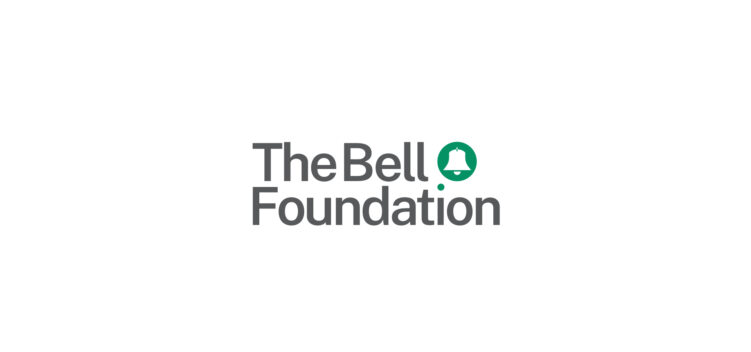Using Comprehensible English – for Secondary School (Online Regional Training)
- Date
- TBC
- Price
- £45
- Type
- Online course, Regional training
- Location
- Online
Explore our seven calls to action for the new Government to integrate children who use EAL.

Early literacy word work refers to learning activities which focus on individual words or short phrases, and which are designed to support learners who are using English as an Additional Language (EAL) to learn to read and write for the first time. The aim of these activities is for learners to be able to understand, read, and write key curriculum-related vocabulary.
With support from visuals, these word-level tasks can support learners who are at the new to English stage of reading, viewing, and writing, to develop their literacy skills within the context of the curriculum.
Early literacy word work is not intended to replace exposure to and support with building sentences and texts, but is a useful strategy for adapting teaching when a learner’s emerging literacy skills are a barrier to engaging with curricular reading and writing tasks.
Learners match images and previously taught/rehearsed words. A word mat showing the images and words can be provided for support. In introducing new words, note that images may not be an adequate representation without explanation or further context.
Learners find the key words in a curriculum text and highlight them. Access to the meaning of the full text could be supported by an audio translation, such as through Microsoft Immersive Reader.
Learners complete familiar words presented with an image by filling in the initial letter or letters. This activity gives practice of letter formation and grapheme-phoneme awareness. When a word begins with a consonant digraph (e.g., sh or th), leaving two spaces for both letters can help with the recognition of the graphemei. A word bank can be provided for support.
Learners label a diagram, image, or set of images with the taught/rehearsed words. A word bank can be provided for support.
Learners make their own flashcards or vocabulary lists by copying words and drawing or sticking in images. Explore ideas for the use of flashcards. In Book Creator, learners can create their own illustrated e-book of key vocabulary and add audio in English and/or their home language.
Learners practise reading or writing familiar vocabulary by working with a partner or in a small group. The activities described above can be completed in pairs or small groups. Examples of games learners can play together for early literacy word work include:
For early literacy word work to be effective, it is important to:
Once the focus words have been chosen and images selected, these can be used repeatedly for different activities. For example, a matching activity created on a Word document, can be easily adapted to make other activities such as labelling or filling in initial letters. Widget Online is a useful website for sourcing visuals and creating resources.
Learners who are literate in another language will have transferable skills when learning to read and write in English (August, et al., 2009), but those who are using English as an Additional Language to learn to read and write for the first time will need considerably more support. Early literacy word work is an approach to addressing some of the specific needs of learners who are at the early stages of literacy, and an example of the kinds of “highly differentiated classroom practices” necessary to meet these (Anderson, et al., 2016).
Research suggests that some specific focus on the development of word-level skills is beneficial for the literacy development of learners using EAL (Murphy and Unthiah, 2015). With its focus on vocabulary building, along with skills such as single word reading and phonological awareness, the activities above combine “language” and “literacy” support (Murphy and Unthiah, 2015). Integrating language and content is a fundamental principle of EAL pedagogy (Gibbons, 2009), and the focus on curriculum-related vocabulary, which underpins the concepts they are learning (Conteh, 2015), supports learners’ access to the curriculum while they are developing their proficiency in English.
Visuals, widely agreed to be useful for learners at the early stages of learning English (NALDIC, 2005), offer contextual support, a key tenet of EAL pedagogy. Cummins argued that the teacher’s task is to gradually reduce contextual support while increasing cognitive challenge (in Sharples, 2021). Although early literacy word work is unlikely to be highly demanding cognitively, the level of cognitive challenge these tasks offer will depend on the learner’s age (Sharples, 2021) and existing skills and knowledge. Because it is context-embedded and unlikely to present significant cognitive challenge, early literacy word work is a supportive starting place for learners who are taking their first steps to engage with written text independently.
Anderson, C., Foley, Y., Sangster, P., Edwards, V., and Rassool, N., 2016. Policy, Pedagogy and Pupil Perceptions: EAL in Scotland and England. [pdf] Available at: < https://www.bell-foundation.org.uk/app/uploads/2017/05/CERES_Full_Report.pdf> [Accessed 10 November 2022].
August, D., Shanahan, T. and Escamilla, K., 2009. English Language Learners: Developing Literacy in Second-Language Learners – Report of the National Literacy Panel on Language-Minority Children and Youth. Journal of Literacy Research, 31(4), pp. 432-452.
Conteh, J., 2015. The EAL Teaching Book: Promoting Success for Multilingual Learners in Primary and Secondary Schools. London: SAGE.
Gibbons, P., 2009. English Learners, Academic Literacy, and Thinking: Learning in the Challenge Zone. Portsmouth: Heinemann.
Murphy, V. and Unthiah, A., 2015. A systematic review of intervention research examining English language and literacy development in children with English as an Additional Language (EAL). London: Educational Endowment Fund.
NALDIC, 2005. Developing Language in the Mainstream Classroom. [pdf] Available at: <https://www.naldic.org.uk/Resources/NALDIC/Initial%20Teacher%20Education/Documents/Developinglanguageinthemainstreamclassroom.pdf> [Accessed 10 November 2022].
Sharples, R., 2021. Teaching EAL: Evidence-based Strategies for the Classroom and School. Bristol: Multilingual Matters.